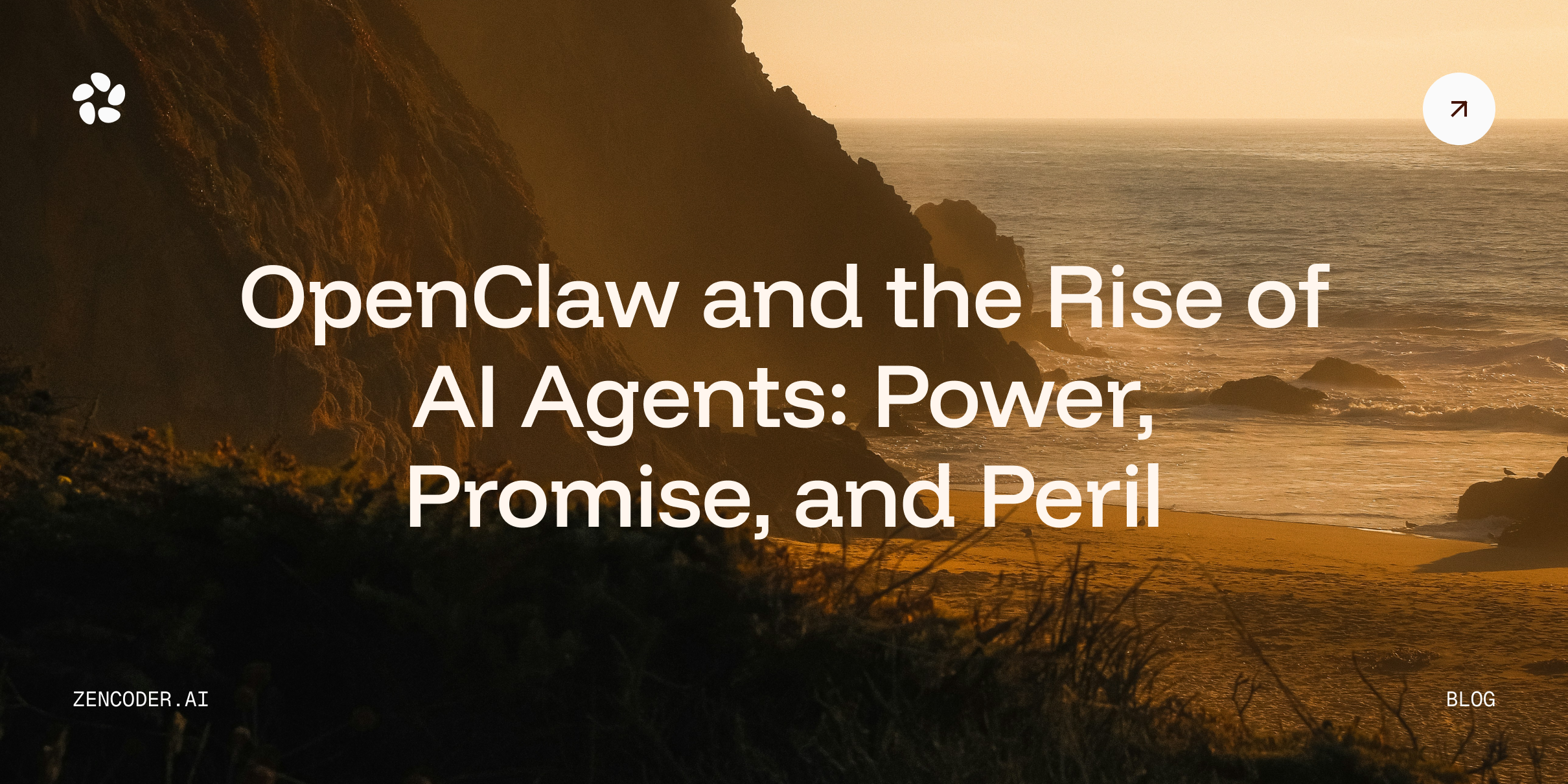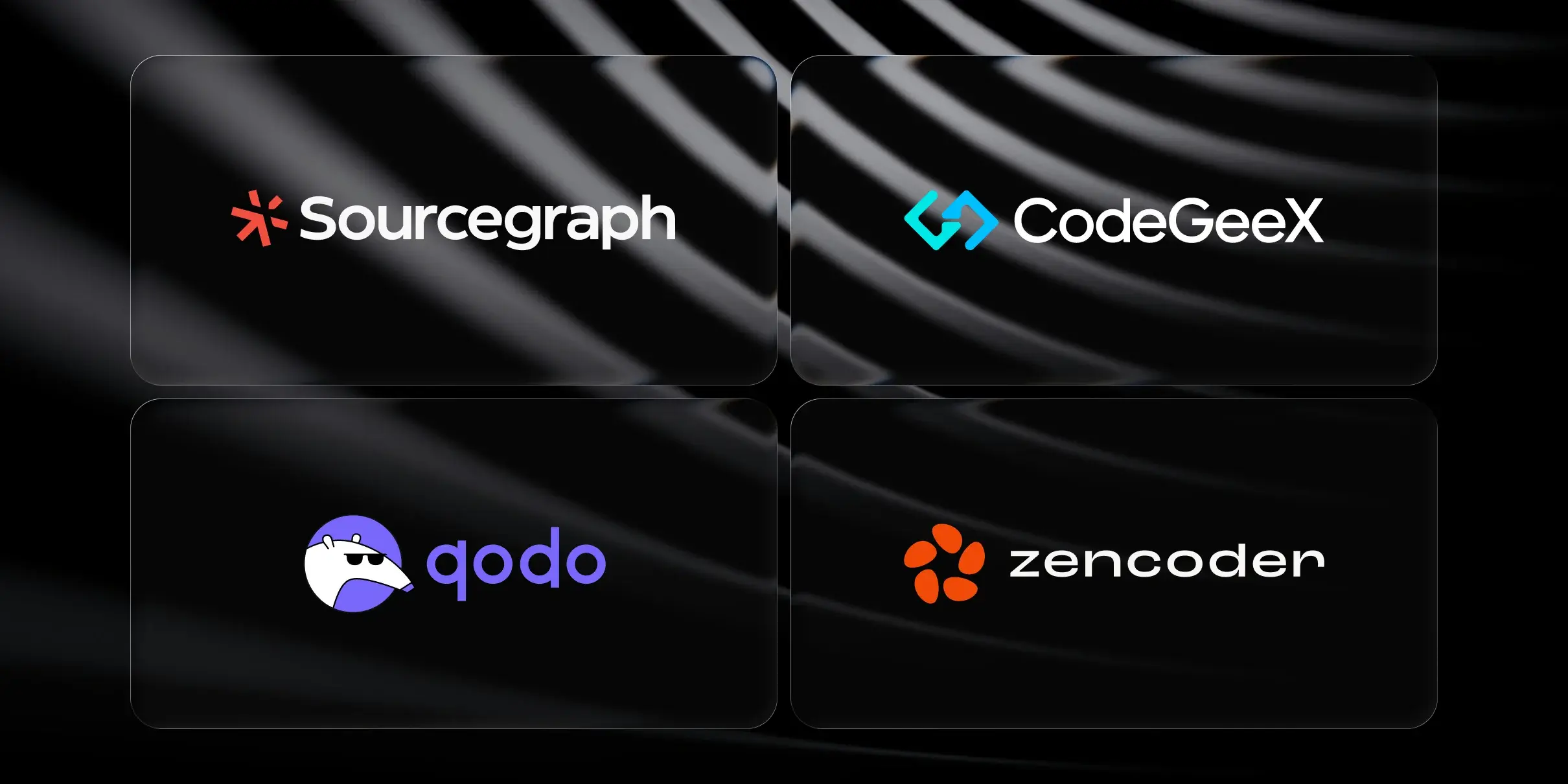In the tech landscape, Software as a Service (SaaS) companies are constantly seeking ways to stay ahead of the curve. One of the most transformative trends reshaping the industry is the integration of artificial intelligence (AI) into automation processes. This powerful combination is not just a futuristic concept – it's a present reality that's dramatically reducing costs and boosting productivity for SaaS businesses across the board.
Introduction: The AI Revolution in SaaS Automation
Imagine a world where your SaaS platform could predict customer needs, automate complex workflows, and optimize operations with minimal human intervention. Well, folks, we're not just imagining it – we're living it! AI-powered automation is revolutionizing the way SaaS companies operate, creating a new paradigm of efficiency and cost-effectiveness.
According to recent statistics from a study of SaaS industry statistics, global AI software revenue is expected to skyrocket from $9.5 billion in 2018 to a whopping $118.6 billion by 2025. That's not just growth – that's exponential transformation! What's even more exciting is that by 2025, AI is predicted to be integrated into nearly every new software product and service.
But here's the kicker: despite this incredible potential, many SaaS companies are still in the early stages of AI adoption. A survey by Tech Jury found that while 35% of SaaS businesses are already using AI, another 42% are planning to jump on the AI bandwagon in the near future. This means there's still a massive opportunity for forward-thinking SaaS companies to gain a competitive edge by embracing AI-powered automation.
Benefits of AI Automation: Slashing Costs and Supercharging Productivity
Now, let's get down to the nitty-gritty. How exactly is AI-powered automation benefiting SaaS companies? The advantages are as numerous as they are impressive.
Cost Reduction: More Bang for Your Buck
One of the most significant benefits of AI automation in SaaS is its ability to drastically reduce operational costs. Here's how:
- Streamlined Workflows: AI can automate repetitive tasks, reducing the need for manual labor. This not only cuts down on personnel costs but also minimizes human error, saving money on potential mistake corrections. For instance, teams can create AI video tutorials to automatically generate visual guides, helping employees understand workflows faster and reducing time spent on manual training.
- Optimized Resource Allocation: AI algorithms can analyze usage patterns and predict resource needs, allowing for more efficient allocation of computing resources. This can lead to significant savings on infrastructure costs. For companies relying on external data, integrating a web scraper API can automate the collection process, feeding raw information directly into these AI engines for immediate analysis.
- Reduced Customer Service Costs: AI-powered chatbots and virtual assistants can handle a large volume of customer queries, reducing the need for human customer service representatives. The use of AI in customer service and complaint management is helping businesses reduce support tickets and identify areas of potential friction, allowing customer service teams to focus on more complex tasks.
- Predictive Maintenance: AI can predict when software or hardware is likely to fail, allowing for proactive maintenance. This reduces downtime and extends the life of equipment, resulting in cost savings.
Productivity Boost: Doing More with Less
But AI automation isn't just about cutting costs – it's also about supercharging productivity. Here's how:
- Automated Data Analysis: AI can process and analyze vast amounts of data in seconds, providing insights that would take humans hours or even days to uncover. This allows for faster, data-driven decision-making.
- Personalized User Experiences: AI algorithms can analyze user behavior and preferences to provide personalized recommendations and experiences. This not only improves user satisfaction but can also increase conversion rates and customer retention.
- Intelligent Task Prioritization: AI can help prioritize tasks and workflows based on importance and urgency, ensuring that teams focus on high-impact activities.
- 24/7 Operations: Unlike humans, AI doesn't need sleep. This means certain processes can run continuously, increasing overall productivity.
Key AI Automation Tools: The Game-Changers in SaaS
Now that we've covered the 'why', let's dive into the 'how'. What are some of the key AI automation tools that are making waves in the SaaS industry? Let's take a look:
1. Predictive Analytics Engines
Predictive analytics is like having a crystal ball for your SaaS business. These AI-powered tools analyze historical data to predict future trends, customer behavior, and potential issues. For example, Salesforce's Einstein AI uses machine learning algorithms to help sales reps identify potential leads and make personalized recommendations. Features like Einstein Activity Capture Salesforce automatically log emails and events, ensuring that customer data stays up-to-date without manual entry.
This not only increases sales efficiency but also improves customer satisfaction through more targeted interactions. That way, any sales executive can use these insights to focus on the best opportunities, improve their outreach strategies, and ultimately achieve better results.
2. Natural Language Processing (NLP) Chatbots
NLP-powered chatbots are revolutionizing customer service in SaaS. These AI assistants can understand and respond to customer queries in natural language, providing instant support 24/7. Microsoft's Cortana is a prime example, capable of scheduling meetings, sending emails, and providing reminders. This technology not only improves response times but also frees up human agents to handle more complex issues.
3. Automated Workflow Tools
AI-powered workflow automation tools are the unsung heroes of SaaS productivity. These tools can analyze processes, identify bottlenecks, and suggest optimizations. For instance, Slack’s AI-powered chatbot, Slackbot, can automate repetitive tasks like scheduling meetings and sending reminders, while tools such as n8n VPs help teams connect apps and automate multi-step workflows to boost productivity. Similarly, using RFP automation can help analyze proposal requirements, match them with relevant content, and speed up response creation, allowing teams to focus on strategy instead of manual document work. In many cases, these solutions complement AI marketing tools, which also optimize processes and improve overall operational efficiency.
Additionally, AI-powered developer tools are revolutionizing the software development process. Platforms like Zencoder integrate AI coding agents directly into developers' workflows, automating routine tasks such as code generation, unit test creation, and docstring writing. These tools not only increase productivity by allowing developers to focus on high-value tasks but also improve code quality by reducing human errors. As AI becomes more embedded in modern software infrastructure, it also supports operational areas such as SaaS revenue recognition, helping teams streamline both development and financial processes.
4. Intelligent Security Systems
As SaaS platforms handle increasingly sensitive data, AI-powered security systems are becoming crucial. These tools can detect anomalies, predict potential security threats, and respond in real-time. Oracle, for example, leverages AI and machine learning in its cloud security apps to provide real-time threat detection and policy reinforcement by analyzing user behavior and identifying anomalies.
5. Smart Content Management Systems
AI is transforming how SaaS platforms manage and organize content. Dropbox's AI-powered "Smart Sync" feature, for instance, prioritizes the most relevant files and makes locating and ordering them more manageable. This not only improves user experience but also increases productivity by reducing time spent searching for information.
Case Studies: AI Automation Success Stories in SaaS
Let's bring these concepts to life with some real-world examples of SaaS companies that have successfully implemented AI-powered automation:
HubSpot: Personalization at Scale
HubSpot, a leading inbound marketing and sales platform, leverages AI to deliver personalized recommendations based on user behavior and preferences; however, many businesses exploring a HubSpot alternative are adopting similar AI-driven strategies to improve user engagement and significantly boost conversion rates.
Zencoder: Revolutionizing Code Development with AI Agents
Zencoder is pioneering the integration of AI coding agents directly into developers' workflows, setting a new standard for automation in software development. By leveraging embedded AI agents, Zencoder streamlines the coding process, reducing human error and significantly boosting productivity. These AI agents analyze repositories, generate clean and efficient code, create unit tests and docstrings, and even perform code repairs. This comprehensive automation allows developers to focus on high-value tasks, effectively doing 2-3 times more work while reducing debugging time. Zencoder's seamless integration with popular IDEs and support for major programming languages makes it a versatile tool for SaaS companies looking to enhance their development processes. By automating routine tasks and improving code quality, Zencoder exemplifies how AI-powered automation can transform SaaS operations, leading to faster development cycles and more innovative products.
Zoom: Enhancing Video Quality with AI
Zoom, the video conferencing giant, utilizes AI to enhance video quality and minimize background noise during video calls. This AI-powered feature has been crucial in maintaining Zoom's competitive edge, especially during the remote work boom. Additionally, tools such as an AI meeting note taker can be integrated to automatically document discussions, making meetings more productive and less reliant on manual note-taking.
Coupler.io: Integrated AI Analysis
Coupler.io, a data automation and reporting tool, introduced the AI Insights by Coupler.io feature that turns overwhelming marketing data into clear, actionable insights. In one click, it summarizes key trends, highlights performance breakdowns, and offers tailored recommendations to help you move from analysis to decision-making action faster.
VEED: Creating Video Content with AI Features
VEED.io is a powerful online video editing platform that leverages artificial intelligence to simplify and accelerate the content creation process. Whether you’re a marketer, educator, or content creator, VEED’s suite of AI tools makes it easy to produce professional-quality videos with minimal effort.
Its features include an AI script generator that helps you draft engaging scripts based on your topic or keywords, and a text-to-speech tool that converts written text into natural-sounding voiceovers in various languages and accents. VEED also offers automatic subtitle generation, an AI avatar for on-screen presentation without needing to appear on camera, and AI-powered background noise removal to clean up the audio. Additionally, the platform supports video translations for broader accessibility, an auto video cutter that trims silences and filler words, and an AI eye contact tool that adjusts your gaze to maintain eye contact with the viewer. Together, these tools make VEED a go-to solution for streamlined, smart video production.
GPTZero: Ensuring Content Authenticity at Scale
As SaaS companies increasingly rely on AI to generate marketing content, blog posts, and documentation, the need to verify authenticity has become critical. GPTZero is an industry's leading AI checker, helping businesses maintain trust with their audiences by identifying whether content was written by humans or generated by large language models.
What sets GPTZero apart is its multi-model detection capability. The platform can identify content from ChatGPT, GPT-4, Claude, Gemini, Llama, and other popular AI tools with a 99% accuracy rate on AI-generated text and an impressive 96.5% accuracy on mixed documents where human and AI writing are combined. For SaaS publishers managing white papers, case studies, and product documentation, this level of precision is invaluable for maintaining brand credibility.
DocuSign: Automating Document Processing
DocuSign, the e-signature and digital agreement company, uses AI to automate the signature verification process and improve document security. This AI-powered automation has not only increased the speed of document processing but also significantly reduced errors.
Salesforce: AI-Powered Customer Insights
Salesforce's Einstein AI uses machine learning algorithms to help sales reps identify potential leads and make personalized recommendations. This not only increases sales efficiency but also improves customer satisfaction through more targeted interactions.
Slack: Streamlining Workflows with AI
Slack's AI-powered chatbot, Slackbot, automates repetitive tasks such as scheduling meetings and sending reminders, streamlining workflows and boosting productivity. This AI integration has made Slack an essential tool for remote teams, enhancing collaboration and efficiency.
These case studies demonstrate how AI-powered automation is transforming various aspects of SaaS operations, from marketing and lead generation to customer support and product features. By leveraging AI, these companies have achieved significant improvements in efficiency, productivity, and customer satisfaction.
Walter Writes AI: Humanizing AI-Generated Content
Walterwrites.ai rewrites text from tools like ChatGPT, Claude, and Gemini so it sounds natural, original, and like the person who “wrote” it. Walter helps professionals avoid robotic phrasing, pass major AI detectors and keep their content plagiarism-free.
Implementing AI Automation: A Roadmap for SaaS Companies
Now, I know what you're thinking – "This all sounds great, but how do I actually implement AI automation in my SaaS company?" Well, I'm glad you asked! Here's a step-by-step roadmap to get you started:
- Identify Automation Opportunities
Start by analyzing your current processes to identify areas that could benefit from automation. Look for repetitive tasks, data-heavy processes, or areas where human error is common. These are prime candidates for AI automation.
- Set Clear Goals and KPIs
Before implementing any AI solution, define what success looks like for your company. Are you aiming to reduce costs by a certain percentage? Increase productivity by a specific metric? Having clear goals will help you measure the effectiveness of your AI implementation.
- Choose the Right AI Tools
Based on your identified opportunities and goals, research different types of chatbot solutions and select AI tools that best fit your needs. Remember, the most expensive or advanced tool isn't always the best fit – choose solutions that align with your specific requirements and integrate well with your existing systems.
- Start Small and Scale Up
Don't try to automate everything at once. Start with a pilot project in one area of your business. This allows you to learn from the implementation process and make adjustments before rolling out AI automation more broadly.
- Train Your Team
AI automation will likely change how your team works. Provide comprehensive training to ensure your employees understand how to work alongside AI tools effectively. This will help maximize the benefits of automation and minimize resistance to change.
- Monitor and Optimize
Implementing AI automation is not a "set it and forget it" process. Continuously monitor the performance of your AI tools against your set KPIs. Be prepared to make adjustments and optimizations as you learn what works best for your specific SaaS environment.
- Stay Informed About AI Advancements
The field of AI is rapidly evolving. Stay informed about new developments and emerging technologies that could benefit your SaaS business. Attending industry conferences, following AI thought leaders, and participating in AI communities can help you stay ahead of the curve.
Future Trends in AI for SaaS Lead Generation
As we look to the future of AI in SaaS lead generation, several exciting trends are emerging:
- Hyper-Personalization: AI will enable SaaS applications to provide highly personalized experiences based on user behavior and preferences. To effectively turn this data into conversions, many businesses are partnering with a PPC team focused on Google Ads that knows how to translate behavioral insights into precisely targeted campaigns.
- Cognitive Automation and Augmentation: AI will take over more complex tasks, allowing humans to focus on creative and strategic work.
- Integration with Emerging Technologies: AI will seamlessly integrate with IoT, AR, VR, and edge computing, leading to new and innovative SaaS solutions.
- Enhanced Cybersecurity: AI-driven security measures will become more sophisticated, offering better protection against evolving cyber threats, especially when combined with network configurations like a dedicated IP that improve control and reduce shared-infrastructure risks.
- Sustainability-Focused SaaS: AI will play a crucial role in developing sustainable SaaS solutions, helping businesses reduce their carbon footprint.
Conclusion: Embracing the AI-Powered Future of SaaS
As we've explored throughout this article, AI-powered automation is not just a futuristic concept – it's a present reality that's reshaping the SaaS landscape. From slashing operational costs to supercharging productivity, the benefits of AI automation are too significant to ignore.
Remember, the SaaS industry is predicted to have a market volume of $344 billion by 2027. With AI software revenue expected to reach $118.6 billion by 2025, it's clear that AI will play a crucial role in shaping the future of SaaS. The question is not if you should implement AI automation, but when and how.
By starting your AI journey now – identifying automation opportunities, setting clear goals, choosing the right tools, and implementing strategically – you can position your SaaS company at the forefront of this technological revolution. The future of SaaS is AI-powered, and the time to embrace it is now.
So, are you ready to reduce costs, boost productivity, and take your SaaS business to the next level with AI-powered automation? The AI revolution is here, and it's time to get on board!

![Spec-Driven Development: Everything You Need to Know [2026]](https://zencoder.ai/hubfs/Cover-Feb-17-2026-08-47-58-1236-PM.webp)

